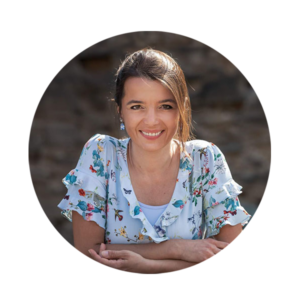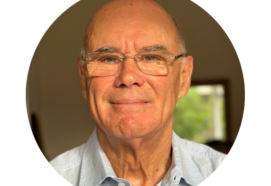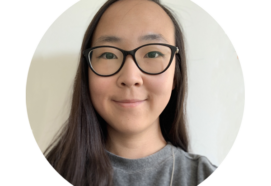In this podcast series ‘Autism, a parents guide’ Dr. Ann Ozsivadjian with special guest Dr. Marianna Murin discusses autism with freelance journalist Jo Carlowe.
Episode 2 looks at ‘Discovering Strengths – how to empower your autistic child’, Ann and Marianna look at a strength-based model for autism, what types of strengths can be built upon and who can play a key role in helping and empowering children and young people with autism.
We are delighted to that this podcast series for parents is supported by the Autism Diagnostic Practice at Clinical Partners. Working nationwide with only the most experienced consultants, Clinical Partners ensures you get the best ASD diagnosis and help tailored specifically to your child, as fast as possible. Discover more.
You can listen to this podcast directly on our website or on the following platforms; SoundCloud, iTunes, Spotify, CastBox, Deezer, Google Podcasts and Radio.com (not available in the EU).
Other Episodes in The Series
Episode 1 ‘Identifying Autism – getting the right diagnosis’ with Dr. Ann Ozsivadjian.
Episode 3 ‘How autism presents differently in girls’ with Dr. Ann Ozsivadjian and Dr. Marianna Murin
Episode 5 ‘Recognising mental health issues’ with Dr. Ann Ozsivadjian
Episode 6 ‘Food Sensitivities and Proclivities’ with Dr. Vicki Ford
Episode 7 ‘Tailoring Support CBT and Mindfulness’
Episode 8 ‘Challenging Behaviour and Demand Avoidance’
Transcript
Intro: This podcast is brought to you by The Association for Child and Adolescent Mental Health, ACAMH for short. You can find more podcasts and other resources on our website, www.ACAMH.org and follow us on social media by searching ACAMH.
Interviewer: Hello. I’m Jo Carlowe, a freelance journalist with a specialism in psychology. Welcome to the latest instalment of ‘Autism, A Parent’s Guide’. This podcast series focuses on autism spectrum disorder and is designed to help families and carers. It is produced by the mental health charity The Association for Child and Adolescent Mental Health, ACAMH for short, in partnership with Clinical Partners. Search for Clinical Partners, Autism or visit www.clinical-partners.co.uk.
For more information about ACAMH, visit www.ACAMH.org. The focus of today’s discussion is how to discover strengths in your child and empower them. Amongst the discussion points is how you can help empower your child, what types of strengths can be built upon, together with who can play a key role in helping children and young people with ASD.
Today, I’m interviewing. Dr. Ann Ozsivadjian, independent clinical psychologist, researcher at King’s College London and honorary principal clinical psychologist at the Evelina London Children’s Hospital, and chartered clinical psychologist Marianna Murin, who is the founder of Autism Spectrum Directions Limited. Ann and Marianna, welcome. Can you start by introducing yourselves.
Dr. Ann Ozsivadjian: Yes. I’m Ann Ozsivadjian. I’m a principal clinical psychologist in independent practice. I’m also an honorary clinical psychologist at the Evelina London Children’s Hospital where I worked in a complex neurodevelopmental disorders team for 16 years. I’m also an honorary researcher at King’s College London.
Marianna Murin: Hi, I’m Marianna Murin. I’m a chartered clinical psychologist in independent practice and I also work at Anna Freud Centre and UCL as a senior clinical tutor.
Interviewer: Greta Thunberg, the schoolgirl climate activist, has spoken about her Asperger’s Syndrome diagnosis. She calls her ASD her superpower. How might parents set about discovering or helping their child discover their superpower?
Marianna Murin: What a brilliant question to get started with. Both Anna and I feel very strongly about promoting neurodiversity and strength-based model of autism spectrum. Whilst we do not want to play down the difficulties children with autism spectrum can and do experience, we have brilliant news for parents and professionals. In this regard, children with autism spectrum do tend to make our job much easier as they tend to discover their passions and superpowers themselves, mostly, and leave us just with the wonderful creative task of how to channel these in helpful ways.
Most, not all but majority of children with autism spectrum have areas of strong interests or preoccupations, even, which they can dedicate remarkable concentration, time and passion to. People tend to assume that you have to be born a genius and whilst that seems to be true, that few exceptional figures throughout history had extraordinary talent, comprehensive research over the decades shows us the difference between majority or even above the norm from true outliers is not necessarily in the talent or IQ they were born with but in the hours they put into practising particular skill. As such, all of the areas of specific interests, preoccupations or obsessions are potential natural superpowers, as the children are intrinsically motivated to put incredible amount of hours into these.
In fact, often to the detriment of engaging in other activities. Our main creative task is to facilitate the children and young people to channel their talents in effective ways so they can apply their natural strengths in ways that will enable them to grow and realize their potential to the full.
Interviewer: In terms of empowerment, how can one help empower one’s child?
Marianna Murin: To answer this question, I would love to represent the views of autistic community. There’s a really fascinating PhD research study conducted looking at factors that facilitated successful outcomes for adults on the autism spectrum. It’s a part of a large collaborative research consortium headed by Microsoft Research, University of Washington and Stanford Neurodiversity Project. Research focuses on qualitative analysis of case studies, and hundreds of hours spent with autistic individuals and their employers.
The four strongest findings consistently coming out from the accounts of all participants who have been able to apply themselves successfully, and we are talking about individuals who are true outliers in their field, in highly respected and highly paid positions, still the same four factors applied.
Firstly, they all consistently reported that they grew up in environments where their autistic features were accepted and they were able to practice their strong interest in preoccupations.
Secondly, individuals who had to suppress their natural way of being and their strong interests, reported this as virtually traumatic, something they will still remember and carried with them.
Another factor is the importance of finding one’s, quote, tribe. One of the biggest factors that negatively affected the availability to find work or autonomy and independence was the presence of co-occurring mental health conditions that stemmed from social isolation. Those that they found their tribe had better outcomes in completing further education, building the skills necessary to transition to employment and adulthood. Those that did not had far higher dropout rates, high incidence of depression and suicidal ideation and poor employment outcomes.
A final factor to note in relation to this is that children and young adults who are forced into groups by parents or well-meaning teachers found the experience traumatic and suffered higher incidence of social anxiety, lower self-esteem and developed fewer methods for self regulation.
They were also more prone to burnout, as the process of masking their symptoms in such groups was generally exhausting. So, listening to the autistic community, the key messages really are embracing neurodiversity and natural strengths of the child. We would just like to emphasise that this does not mean not putting in necessary boundaries, such as for the screen time or any other interest that potentially interferes with tasks that have to be accomplished on day to day basis. However, respecting neurodiversity, supporting your child’s natural strengths and channelling these appropriately, seems to be the most powerful ways of empowering self-realisation of the children autism spectrum.
Interviewer: What are the types of strengths that can be built upon?
Marianna Murin: There’s no limit to the strengths that can be built upon. As we mentioned earlier, neurodiversity is key to survival and progress and we need people with all sorts of cognitive styles and interests. The key to ensuring is that we notice the natural strands of the children and find ways of channelling these effectively.
Now obviously, when children are very young and especially prior to them being diagnosed and prior to parents having any insight into the unique aspects of their child development, this can be even scary. For example, if the child is repetitively lining things up and sorting objects over and over again, many parents would naturally feel that they need to stop their child from doing this and engage them in some more typical play, start attending various play groups, organised play dates.
However, all the top coders and programmers, they were all early systemisers and their skill was built upon by their fascination in patterns. And for example, one of the exceptional high achievers in the study reported that, as a young child, he was very interested in other children, but didn’t know how to join in their play. So he taped up camera to his remote controlled car when he was very little and was recording children playing in the park. Then, spent hours watching the videos of their play. As one can imagine, parents would naturally be quite concerned about the unusual nature of their child’s play, especially if they did not have a diagnosis or understanding why is their child doing this. Many parents would be concerned about the consequences of this behaviour in the future as the child gets older, so would do anything to stop this. However, in his case, one of his uncle’s who was apparently very technologically minded, managed to channel his interest and he is now in a very prominent position in drone technology.
So, the question is any natural strength of the child can be built upon when we, as a society, manage to be more open to neurodiversity and truly appreciate the unique contribution of the neurodiverse community.
Interviewer: How does approaching ASD from a strength-based model rather than a deficit model impact the way that services and support are provided?
Dr. Ann Ozsivadjian: Yes. I must admit I’m getting increasingly uncomfortable about using the word disorder and I find myself slightly apologising when giving diagnoses, about the over-pathologising nature of the word, really. But more and more people are referring to autism spectrum condition or just autism spectrum, rather than disorder and this certainly deflects from a deficit model. So, while we do need to focus on needs in order to plan for education, community access, vocational support, etcetera, we also absolutely do need to identify and foster strengths which may benefit not only the individual but society as a whole, as Marianna very articulately described.
Services need to allow parents the space to adjust to a diagnosis, but also provide them with empowering messages, not just deficit focused messages, so that they can support their child in reaching their potential. Also, in preventing as far as possible, emotional difficulties. Much of the anxiety and low mood experienced by people with autism could be prevented or at least reduced by providing opportunities to find a vocation, or friendships, or other social connections. My own personal hobbyhorse is really about getting education right.
So, creating educational settings which foster autistic strengths, are essential. Expecting people to fit into, for example, rigid discipline systems to learn in a conventional way, to fit in with neurotypical peers, may be unrealistic. So, mainstream education works for some people. Some people need a special needs setting, some people need a mixture of both. So, if we can use strengths as a starting point, we’re much more likely to get this right.
Interviewer: Is this just something for carers and parents or can teachers and health professionals play a role? And if so, how?
Dr. Ann Ozsivadjian: It’s everyone’s role. It’s the role of health professionals. So, from diagnosis, onwards. Identifying a profile of strengths as well as needs and in terms of therapy, again, focusing on strengths and resilience as well as difficulties. It’s the role of schools in making reasonable adjustments to accommodate the needs of their autistic pupils while identifying and capitalising on strengths and talents. Then, supporting people beyond education, into the workplace or into other meaningful occupations. It’s the role of artists, writers and journalists in creating a different narrative about autism and in fact neurodiversity, more broadly. And it’s the role of autistic people themselves, should they wish to be open about their diagnosis and experiences.
It’s a personal choice, of course but books for example, like the Curious Incident of the Dog At Night Time did a huge amount for increasing awareness about autism, as well about ceilings in in Victorian London Theatres! Similarly, we need to increase awareness of the strengths and talents of autism, not just the difficulties. I was really pleased to read in The Economist, actually a couple of years back, an article which was a leader not just in the science and technology pages but the front page is about this. It was actually called Beautiful Minds Wasted. So, The Economist is quite known for using to the point language. But the essence of the article was the same as the message that we hope we’re conveying in this podcast, which is that supporting people into the workplace and society can pay huge dividends. Not just for the individuals, but society as a whole.
Interviewer: For those listening to this podcast, where can they go for more information or to find helpful resources on the issues we’ve talked about today?
Dr. Ann Ozsivadjian: So we’d recommend Steve Silberman’s writings and YouTube videos on neurodiversity. They’re excellent. I’ve also just read an incredible book, actually, called The Power of Neurodiversity by someone called Thomas Armstrong. It also has chapters on depression, anxiety, as well as autism, ADHD, etcetera. It talks very well about how these “deficits”, quote-unquote, can also have positive flip sides and provide quite powerful learning experiences.
Interviewer: Finally, what is your takeaway message for those listening to our conversation?
Ann Ozsivadjian: I think a key thing is that we’re not seeking to minimise the difficulties that people with autism, or those caring for someone with autism, can be up against. It’s just about giving people with autism and other neurodiverse conditions, a fair chance at succeeding in life and creating a more tolerant and inclusive society.
Interviewer: For other episodes in the series ‘Autism, A Parent’s Guide’, please visit www.ACAMH.org and follow ACAMH on Twitter at ACAMH, or search on your podcast provider. Once again, our thanks go to Clinical Partners for supporting this autism podcast series. With the UK’s largest network of senior mental health in autism professionals, Clinical Partners can help ensure your child is fast-tracked to the right diagnosis and optimised treatment plan. For further information and advice for families and carers, search for Clinical Partners, Autism or visit www.clinical-partners.co.uk.
Close: This podcast was brought to you by The Association for Child and Adolescent Mental Health, ACAMH for short.
Other Episodes
Episode 1 – ‘Identifying Autism – getting the right diagnosis’, and Dr. Ann Ozsivadjian looks at the types and behaviours in children that may get parents/carers to question if their child could be autistic, and what they can do to access the right diagnosis.
About the speakers

Principal Clinical Psychologist at Evelina London Children’s Hospital, Guy’s and Thomas’ NHS Foundation Trust
Ann trained in clinical psychology at Oxford and is now an honorary principal clinical psychologist at the Evelina London Children’s Hospital, honorary researcher at King’s College London and is also an independent practitioner. Ann worked in the Complex Paediatric Neurodevelopmental Disability Service at the Children’s Neurosciences Centre, Evelina London Children’s Hospital (Guy’s and St Thomas’ NHS Foundation Trust) for 16 years. Her clinical and research interests include the assessment and treatment of mental health difficulties in ASD, cognitive pathways to anxiety in ASD, and also working with girls and women on the autism spectrum.

Chartered Clinical Psychologist and Senior Clinical Tutor at the Anna Freud Centre and University College London
I am a Chartered Clinical Psychologist with full membership in regulatory professional organisations – the British Psychological Society, and professional recognition from the Health Professions Council. For over twenty years, I have dedicated my work to promoting the psychological well-being of people on the Autism Spectrum and improving understanding of ASD as an international trainer in diagnostics of ASD, lecturer, writer and therapist. (bio via ASD Directions)



